Premium Only Content
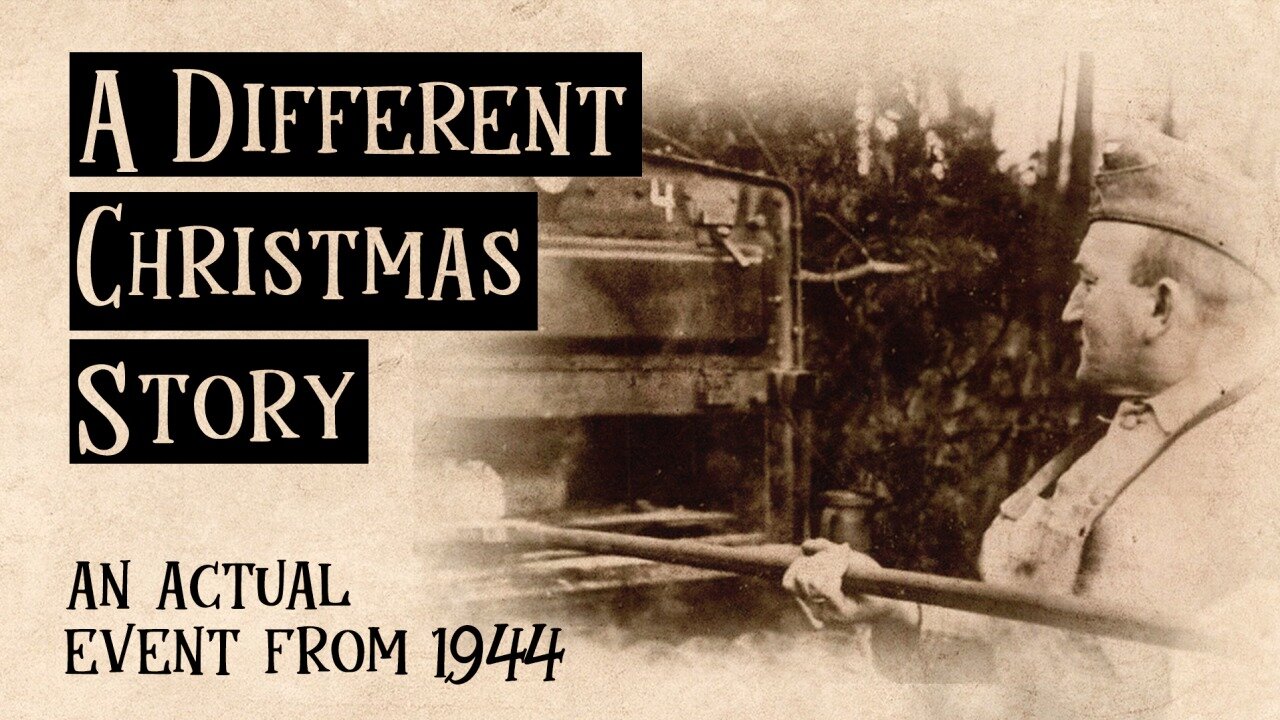
A Different Christmas Story - an actual event from 1944
Winter 1944 in Germany. Many on the Rhine thought the war was coming to an end. That's why master baker Vincken brought his bombed-out family, his wife and their twelve-year-old son Fritz to an area called Hürtgenwald, where he had been conscripted to bake bread for the Wehrmacht. After hours of driving through the night, he took them in a jeep to an empty hut hidden in a clearing. But the front stiffened. In December, there was even a counter-offensive. Deeply snowed in, the two of them continued to hold out in the hut. But the father found it increasingly difficult to provide for his family. And so Christmas Eve 1944 arrived.
His son Fritz later wrote down everything that happened:
We heard the muffled roar of Allied fighter planes all day long. It was bitterly cold. Mother made chicken soup by the stove in the dim light of a candle. Dad was out organizing. Suddenly there was a knock at the door. Startled, I flinched and saw my mother hastily blow out the candles. There was another knock. We took heart and opened the door. Two men in steel helmets were standing outside. One spoke in a foreign language and pointed to a third man lying in the snow. We realized: These men were American soldiers. Mother stood motionless next to me. They were armed and could have forced their entry, but they stood there and asked with their eyes. The man sitting in the snow seemed more dead than alive.
"Come in," Mother said with an inviting gesture. One of them was able to make himself understood by my mother in French. Mother took care of the wounded man. Sitting by the stove, the cold left them. Their spirits returned. The three were scattered, had lost their unit and had been wandering around in the forest for days. Mother told me: "Go and bring six more potatoes." She lit a second candle and cut the washed, unpeeled potatoes into the soup. Peeling them would have been a waste at the time. The wounded man had bled a lot and lay impassive and still. Mother's soup had an inviting aroma. I was just about to set the table when there was another knock at the door. I was expecting more scattered Americans and opened it without hesitation. They were soldiers, four men, and all armed to the teeth. The uniform was familiar to me. They were our Wehrmacht soldiers. I was paralyzed with shock. Was this the end for us? Mother stepped out. Her calm voice reassured me a little. "You're bringing the freezing cold with you, do you want to eat with us?" she said. She had struck the right note. The soldiers greeted us in a friendly manner and were clearly happy to have found compatriots on Christmas Eve in the Ardennes borderland between the fronts. "Can we warm up a little?" asked the senior soldier, a sergeant. "Maybe we can stay until tomorrow?". "Of course," Mother replied warmly and then added boldly: "There are already three frozen people here to warm up. Please don't make a ruckus on Christmas Eve!"
The sergeant had understood. He gruffly demanded to know: " Americans?" Mother looked at each of them and said slowly: "You could be my sons and those in there too. One is wounded, not well at all. The others are as hungry and tired as you are." Then she said to the sergeant: "It's Christmas Eve, there's no shooting here!".
He stared at her. For two or three endless seconds, - but Mother said firmly: "Put the guns on the wood pile and come in!". "Do as she says," growled the sergeant. Without saying a word, they put their weapons in the shed where we kept our wood: three carbines, two pistols, a light machine gun and two bazookas. The enemy had not gone unnoticed by the Americans. With the courage of desperation, they were willing to fight back.
When everyone was in the small parlor, they seemed at a loss. Mother, however, was in her element. Smiling, she looked for a seat for everyone. We had three chairs, but mother's bed was big. We kept quiet - there was a tension in the air. Mother went back to cooking. The wounded man moaned loudly. One of the Germans bent over him. "Are you a medic?" Mother asked. He replied: "No, but I studied medicine in Heidelberg until a few months ago. Then he explained to the Americans in English: "The wound is not infected thanks to the cold. But he has lost blood and needs to rest and eat well."
Now the tension eased. The sergeant took a bottle of red wine from his haversack and another put a loaf of army bread on the table. Mother cut the bread into slices. She poured some of the wine into the cup: "For the sick person!" The rest was divided up. Now everything was ready for the Christmas meal. Two candles flickered on the table. Mother sat at the head of the table on an improvised seat.
At home, it was not customary to pray out loud before the meal. But now everything was different. It was a solemn atmosphere. It would not have occurred to anyone to make light of the meal. We held each other's hands, Mother spoke with poignant sincerity, as if she were announcing Christmas: "Come, Lord Jesus, and be our guest..." She concluded with the words: ...and please, finally put an end to this war!" As I looked around the group, I noticed tears in the eyes of the soldiers. And nobody was ashamed.
Eventually we went to sleep. I found a place in my mother's bed. After a meager breakfast, the sergeant showed the Americans the way to the American lines. A German compass changed hands. "Be careful where you go. Many paths are mined. If you hear your jabos (fighter-bombers), wave at them like the devil." The medic translated into English. Then they armed themselves again. Everyone hugged each other happily; they promised to meet again: "As soon as this damn war is over!"
In January 1996, more than 50 years later, Fritz Vincken actually met the Americans again. One of them still had the German Wehrmacht compass that he had never parted with.
from Fritz Vincken
Sources/Links:
VERGISSMEINICHT, Jürgen Hösl, Postfach 1218, 02752 Zittau, im Dezember 2022
(aus der Leserbriefzeitung LBZ, 328. Ausgabe, Jahrgang 2023)
-
 2:03:25
2:03:25
The Quartering
4 hours agoFlag Burning, Free Speech, Church Attack & More With Andrew Wilson
167K260 -
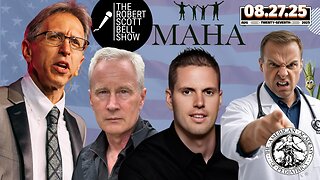 LIVE
LIVE
The Robert Scott Bell Show
18 hours agoDr. Peter McCullough, Vaccines: Mythology, Ideology, and Reality, Dr. Dan Sullivan, Chiropractic - The RSB Show 8-27-25
204 watching -
 1:21:03
1:21:03
Darkhorse Podcast
4 hours agoFreedom, Tyranny, and Childhood Lost: The 291st Evolutionary Lens w/ Bret Weinstein & Heather Heying
19.3K13 -
 LIVE
LIVE
LFA TV
10 hours agoLFA TV ALL DAY STREAM - WEDNESDAY 8/27/25
1,706 watching -
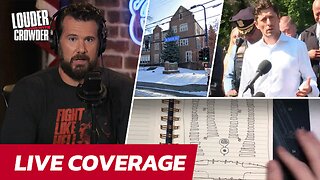 2:34:01
2:34:01
Steven Crowder
4 hours agoBREAKING: Minnesota Catholic School Shooting Update - Shooter & Manifesto
269K363 -
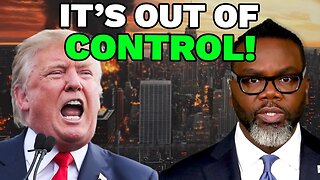 42:22
42:22
Stephen Gardner
1 hour ago🚨CHICAGO Mayor PISSED as Residents BEG Trump to send National Guard
9.23K2 -
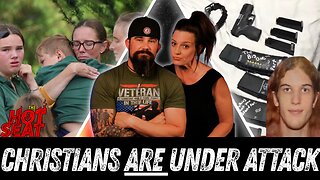
The HotSeat
1 hour agoChristian School Shooting in Minnesota – Faith Under Fire & Prophecy Being Fulfilled
5.69K3 -
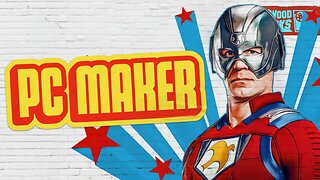 LIVE
LIVE
Film Threat
17 hours agoPEACEMAKER BLOWS GUNN'S DC! PLUS ALIEN: EARTH AND DEXTER RESURRECTION | Hollywood on the Rocks
61 watching -
 1:05:34
1:05:34
The Kevin Trudeau Show Limitless
7 hours agoKevin Trudeau Uncensored The Untold Story Of Wealth, Health & Business Success
2.77K1 -
 LIVE
LIVE
StoneMountain64
4 hours agoHUNTING FOR THE FIRST WIN BACK ON WARZONE
328 watching